This change is a _____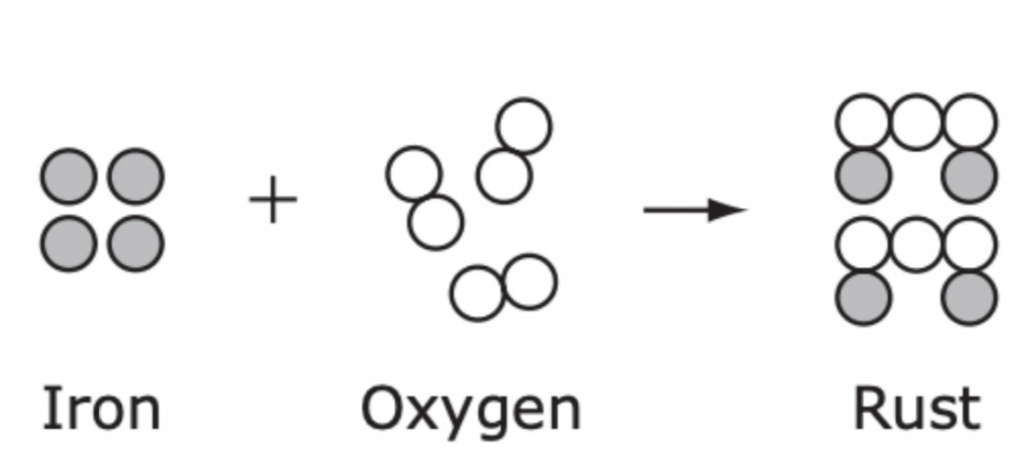
CHEMICAL CHANGE
A change in a gene is called a ___________. It may cause a trait to change and the trait can be positive, negative or neutral
what is mutation?
Surface feature formed when one oceanic and one continental plate converge
What are volcanoes?
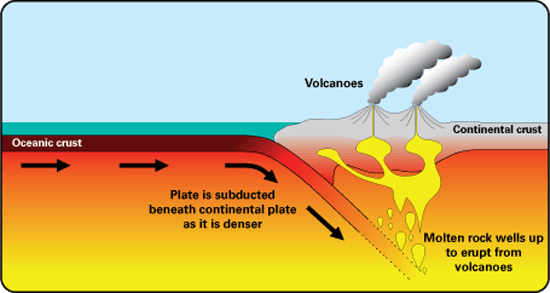
These two balls are moving at the same speed, which one has more kinetic energy? why? 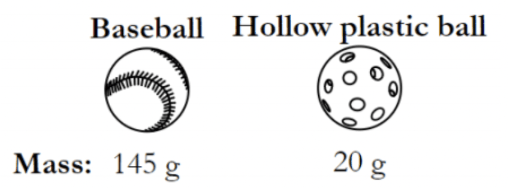
Baseball because it has greater mass
What is the slow process that is most responsible for the decrease in height of the Appalachian Mountains?
A. Plate tectonics converging
B. Plate tectonic subducting under another
C. Weathering and erosion from wind and water
C. Weathering and erosion from wind and water
Phase changes (solid to liquid, liquid to gas etc.) are considered a _______ change.
PHYSICAL CHANGE
Reproduction that leads to offsprings with GENETIC VARIETY and chance for NATURAL SELECTION when facing changes.
SEXUAL REPRODUCTION
Process occurring where two oceanic plates DIVERGE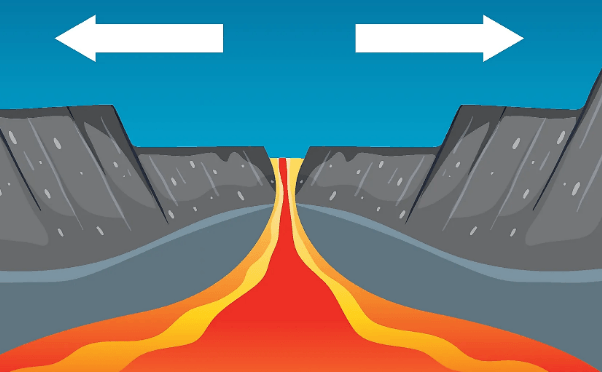
What is Seafloor Spreading? 
Which has more kinetic energy if the car and bike moves at the same speed?
A. They have the same KE
B. Car has more KE because it has more mass
C. Bike has more KE because it has less mass
B! Car has more kinetic energy because it has more mass.
KE increases linearly to mass and exponentially to speed.

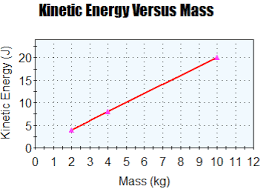
A student rolls a ball down the ramp shown in the picture below. The ramp is supported by four stacked books. The student removes two books from the stack. how does motion change?
A. The ball has a greater speed at the top of the ramp
B. The ball has a greater speed at the bottom of the ramp
C. The ball takes more time to roll off the ramp.
B. The ball will have a greater speed at the BOTTOM
The ball starts with more potential energy because of its greater height.
All the PE then converts to KE
How would you classify the following substance? Element, compound or mixture?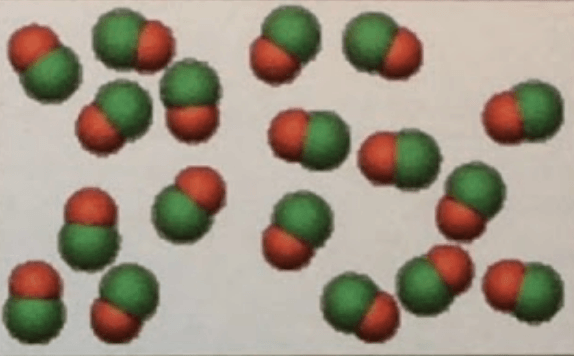
What is a COMPOUND? (Pure substance made of more than one element bonded together)
Process of selecting organisms to mate in order to increase the chance of having offsprings with desirable traits.

What is SELECTIVE BREEDING?
Which organism most likely went extinct first? How do you know?
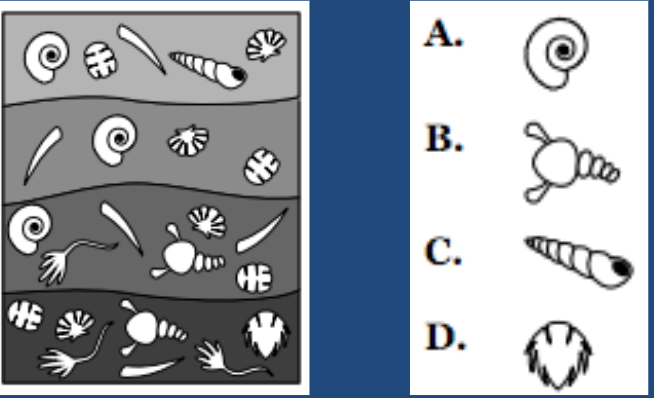

Heat transfer that occurs through direct contact is called...
Conduction
Name and describe 2 cell structures that are different in animal and plant cells. Only plant cells have...
Only plant cells have:
- Chloroplast - to absorb sunlight for photosynthesis
- Cell wall - to protect the cell
How many atoms of each element are in this compound?
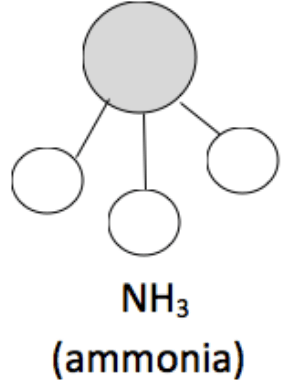
1 Nitrogen atom and 3 hydrogen atom
Brown eyes (B) is DOMINANT to blue eyes (b). What color eyes will someone who has HETEROZYGOUS genes (Bb) have?
What is the most likely explanation for the similarities seen below? The organisms...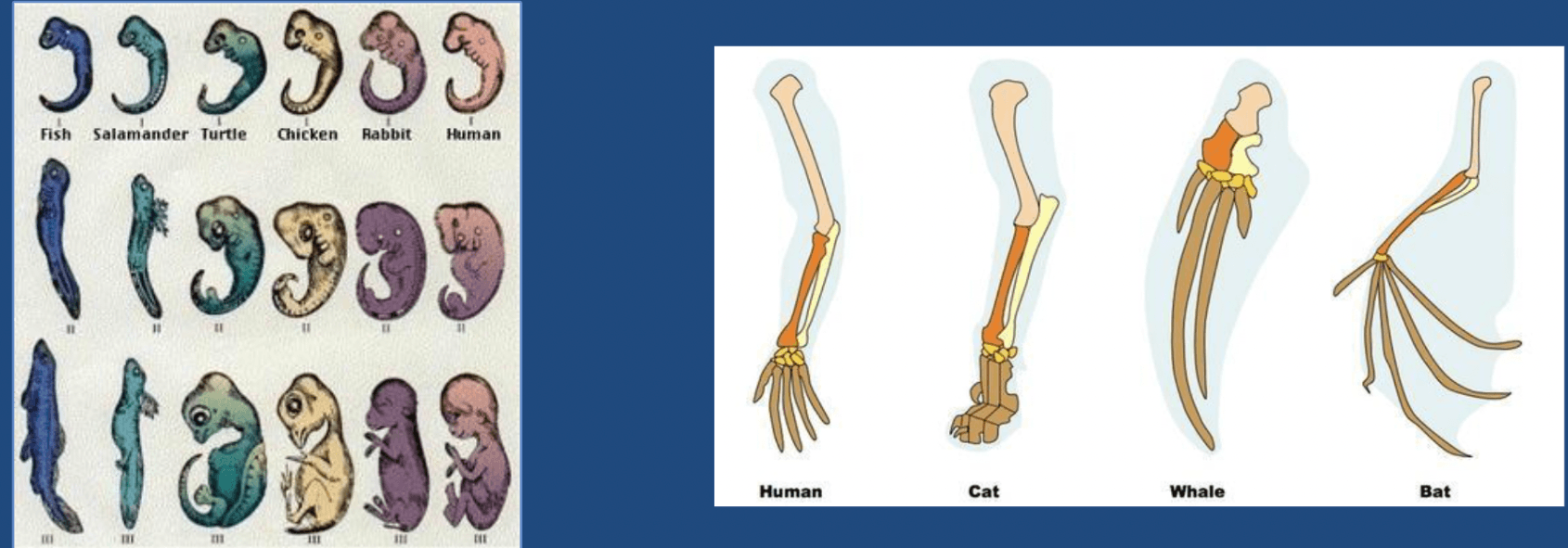
have common ancestors
How does heat transfer between a cup of cold water and the room?
A. Heat from the water goes into to the air
B. Heat from the air goes into the water
Heat from the air goes into the water
(Hot to cold)
At which point does the ball have the most KE?
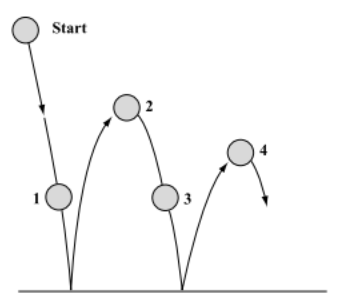
The ball the most KE at point 1. PE from the start transforms to KE.
There is less PE into 2 so 3 will have less KE.
Two hydrogen peroxide (2 H2O2) compounds are broken down into water and oxygen. How many oxygen atoms will there be in the ending product?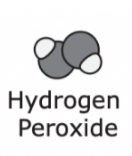
4 OXYGEN ATOMS + (\4 HYDROGEN ATOMS
CONSERVATION OF MASS

Freckles is DOMINANT to no freckles. A HOMOZYGOUS RECESSIVE parent and a HETEROZYGOUS parent have a child. What is the probability of their child being born without freckles?

What is 50%? (ff genes)
Give a reason for why sexually reproducing organisms are more likely to survive in a changing environment. Describe in 1-2 sentences.
Sexually reproducing organisms are born with genetic variety so some individuals may have adaptations to survive and reproduce
Type of heat transfer shown by each of the pictures below. Conduction, convection or radiation?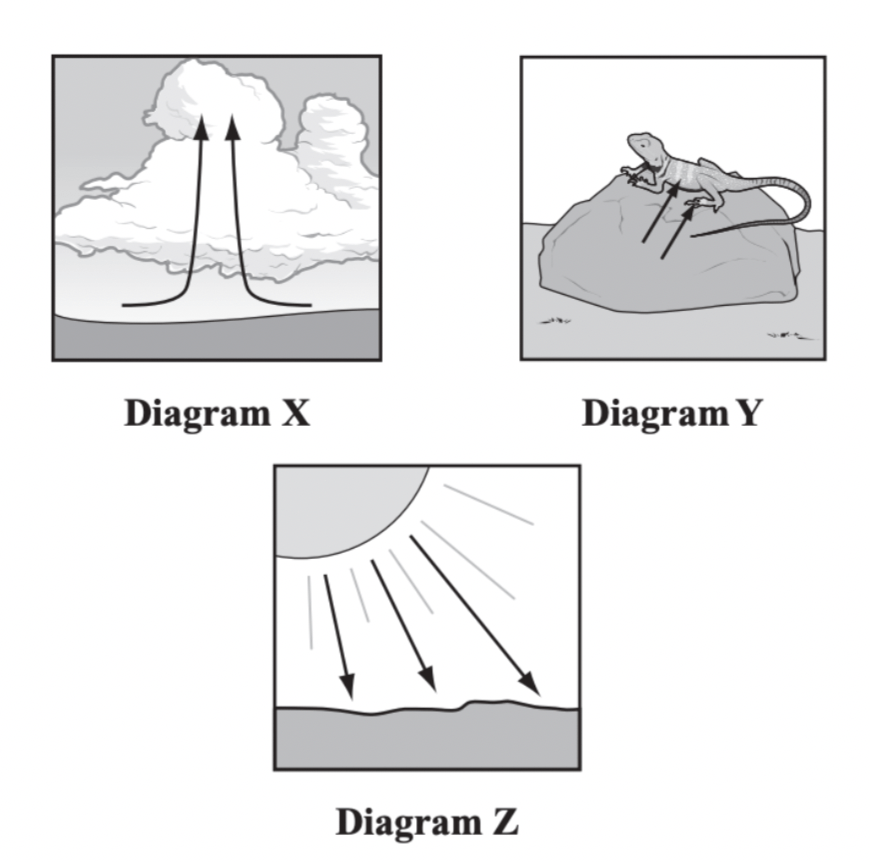
X= Convection
Y= Conduction
Z= Radiation
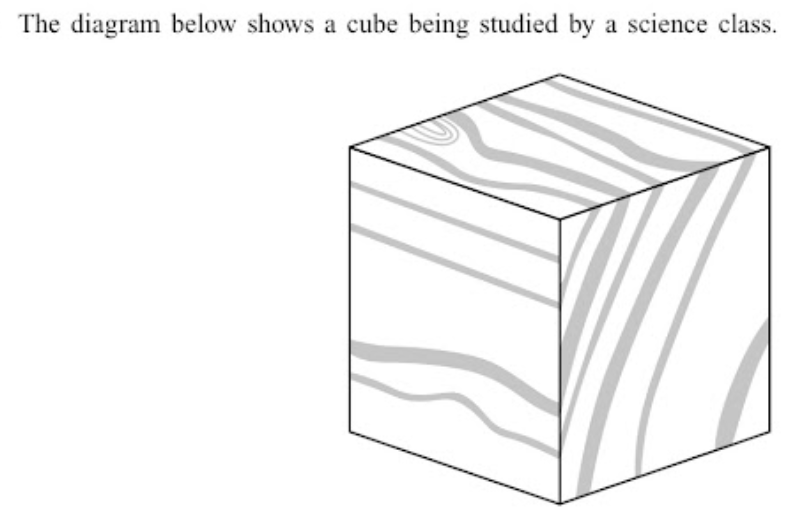
The class is trying to figure out if this block will sink or float. The density of water is 1g/cm^3.
Describe what students should do to calculate the block's density.
1. Measure the volume
2. Weigh the mass
3. Density = Mass divided by volume.